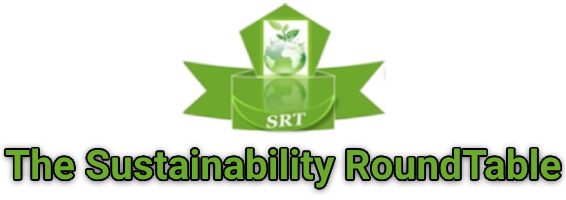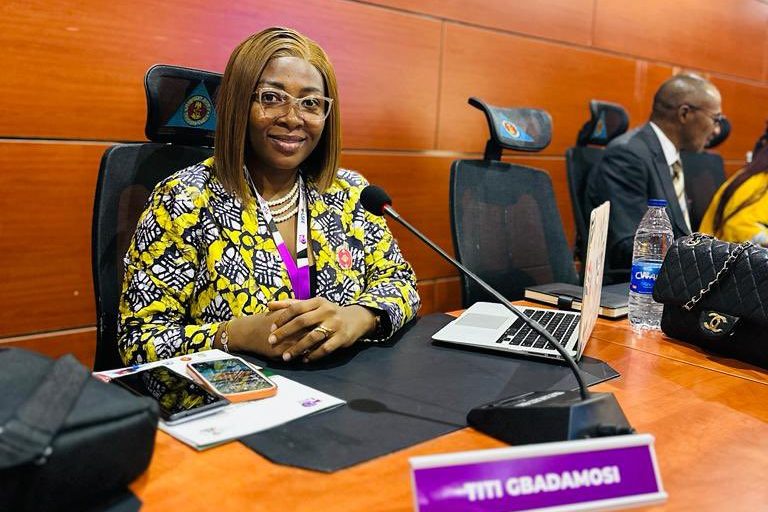Empowering Nigeria’s Future – DDBPI’s National Dialogue Sparks Hope for Youth Leadership
In a compelling display of youth-focused leadership and policy advocacy, the De Dynamic Builders Progressive Initiative (DDBPI) hosted its third Youth National Policy Drive Dialogue Series on Tuesday, November 26, 2024, via Zoom. With the theme “Empowering Youth and the Informal Sector to Drive Institutional Strengthening and Policy Advocacy,” the event brought together a distinguished panel of speakers, government representatives, and policy influencers.
Key speakers included Hon. Ayodele Olawande, Honourable Minister of Youth Development; Hon. Mrs. Titilope Gbadamosi, Special Assistant to President Bola Ahmed Tinubu on Youth Initiatives, Monitoring, and Delivering; Engr. Dr. Mohammed Jibrin, Former Director-General of the National Board for Technology Incubation; and Engr. Anthony Adeola, Director-General of the DDBPI.
Representing Hon. Gbadamosi, Ololade Ogunnubi Special Assistant to President Bola Ahmed Tinubu on Youth Initiatives, Monitoring, and Delivering, highlighted the transformative potential of Nigeria’s youth, who constitute over 25% of the country’s population. Describing young Nigerians as “untapped energy, a dominant force of innovation, and a reservoir of resilience,” Gbadamosi emphasized their vital role in governance, policy advocacy, and institutional strengthening.
She identified systemic barriers preventing meaningful youth participation, such as limited leadership opportunities, education and skill gaps, and financial constraints. “Youth development is not a buzzword but a critical strategy for driving innovation, strengthening institutions, and enhancing policy growth,” Gbadamosi said.
Hon. Gbadamosi outlined several ongoing government initiatives aimed at dismantling these barriers: Limited Leadership Opportunities – Gbadamosi acknowledged the entrenched systems that often exclude youth from leadership roles. She praised DDBPI’s efforts in creating platforms like the National Policy Advocacy Dialogue Series to amplify youth voices and encourage inclusive governance.
Bridging Education and Skills Gaps – Recognizing the need for targeted education, Gbadamosi discussed the launch of the Nigerian Youth Academy (NiYA), a government initiative designed to equip young people with essential skills for leadership and employment. She also highlighted the Nigerian Education Fund (NEFund), which eliminates financial barriers by providing allowances to keep students in school.
Tackling Financial Constraints – Financial barriers often hinder youth participation in entrepreneurial and policy-driven initiatives. The Special Assistant’s office has introduced cash grants and micro-business support programs, fostering economic self-reliance and entrepreneurship.
In addition, Gbadamosi emphasized sector-specific training programs facilitated by agencies -like SMEDAN and the establishment of Youth Advisory Councils at state and local government levels to ensure inclusive youth engagement.
The Informal Sector – A Strategic Focus – Engr. Anthony Adeola, Director-General of DDBPI, provided a deep dive into the organization’s strategic focus on empowering youth within the informal economic sector. With operations in all six geopolitical zones and 36 states, DDBPI seeks to bridge the gap between policy education and practical skill development. “Our mission is to transform Nigeria’s youth into agents of positive change by providing them with the tools, skills, and knowledge to understand and support national policies,” Adeola stated.
DDBPI’s programs align with several Sustainable Development Goals (SDGs) – SDG 8: Youth Employment and Economic Growth – Through entrepreneurship training and employment-focused initiatives. SDG 4 -Quality Education and Lifelong Learning – By addressing education and skills gaps. SDG 16 – Peace, Justice, and Strong Institutions – Through advocacy and policy education. DDBPI’s tailored workshops, economic empowerment initiatives, and community development projects cultivate a sense of ownership and responsibility among young Nigerians, enabling them to contribute meaningfully to national development.
As Hon. Gbadamosi, underscored the importance of collaboration between government agencies, private sector players, and civil society organizations. He noted, “Youth are not just beneficiaries of development policies; they are active participants and leaders of change.” She concludes with a resounding call to action – For Policymakers – Create an enabling environment that empowers youth to lead and innovate. For Private Sector Stakeholders – Invest in youth-led initiatives and entrepreneurship. For Civil Society Organizations – Amplify youth voices in governance and advocacy. In her concluding remarks, Gbadamosi reiterated the need to invest in Nigeria’s youth as a pathway to national progress. “Investing in Nigeria’s youth is investing in the future of our nation. By empowering them, we build institutions that are resilient, policies that are forward-thinking, and a nation that is inclusive and progressive,” she said.
As a non-profit organization dedicated to empowering Nigerian youth, the De Dynamic Builders Progressive Initiative has carved a niche for itself in youth development and advocacy. Guided by principles of empowerment, integrity, inclusivity, sustainability, and collaboration, DDBPI continues to foster a generation of informed and proactive leaders. Its programs are particularly impactful in the informal sector, addressing root causes of youth disengagement and disempowerment. By bridging policy education with practical skills, DDBPI positions young Nigerians as ambassadors of positive change.
Through platforms like the Youth National Policy Drive Dialogue Series, DDBPI demonstrates that youth engagement is not just a theoretical ideal but a practical necessity for sustainable development. As Nigeria grapples with economic, social, and institutional challenges, the empowerment of its youth will be critical to building a resilient, inclusive, and forward-thinking nation. By unlocking the potential of young Nigerians, the country is poised to achieve transformative growth, strengthened institutions, and a legacy of sustainable progress. The future of Nigeria rests in the hands of its youth—a vibrant force ready to lead, innovate, and inspire.


Leave a Reply